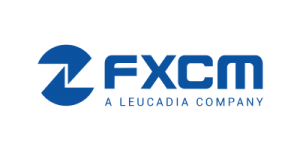Have you ever found yourself in a situation where you don’t know what to choose? Shopping online for example? Something apparently simple can become really complicated if we do not know the classifications and subdivisions. As an old man I knew long ago would say, “the one who does not know what is looking for does not understand what finds”; I think this is applicable to almost everything, and selecting a broker it is no different. Because, are all brokers the same? Definitely not, so it is important to know in advance what are the different types of brokers that exist in Forex in order to select the one that best suits your strategy and needs. From there, once the group of your interest has been defined, you will be able to choose the ideal broker for you. Let’s start then.
Knowing the types of Forex brokers in terms of how they process and execute their clients’ trades is very important to selecting one to work with. Without a doubt, this can have a great impact on your experience in the forex market by influencing aspects such as spreads and speed of execution of operations. Currently there is a large number of brokers, but they do not all work in the same way
With this article we intend to show you what are the advantages and disadvantages of each of the types of Forex broker.
What is a broker
A broker is a financial institution that executes the orders of traders in the markets. In this way it serves as an intermediary between the market makers and the trader. The broker offers market quotes through its various liquidity providers and charges a spread or commission for this service.
Groups of brokers according to the execution of orders.
Specifically, we can divide online brokers into two main groups according to the way their clients’ orders are executed: Those with a dealing desk (Dealing Desk) and those without a dealing desk (Non Dealing Desk).
The first group (DD) is mainly made up of Market Makers. These brokers work with a dealing desk and in a closed environment. Thus, they execute the orders of their clients, either by matching the buy and sell orders, or acting as the counterparty of the order if this matching is not possible.
In the second group we have brokers without a dealing desk (NDD). They redirect client orders to one of their multiple liquidity providers. In this way they obtain the best available purchase and sale prices at all times, which are then offered to their customers. As expected, this process is developed automatically and liquidity providers compete with each other to offer the best price. This group consists of ECN and STP brokers.
Market Maker
Market Maker are called brokers where operations are not carried out directly in the market but in the trading desk (Dealing Desk) of the broker itself.
Hence, its advantage is the availability to execute operations with stable prices and without requotes. In this sense, they work with fixed spreads and can act as a counterparty for operations, ensuring liquidity and availability. Reasons why they are recommended for beginners in the Forex market.
In another order, by acting as a counterparty, the broker can obtain benefits from the losses of its clients and this could lead to a conflict of interest. Due to this characteristic of Market Makers, it is necessary to look for a reliable broker.
Advantages
- Trades are executed instantly and without price requotes.
- Stable prices with fixed spreads.
- Small minimum deposit requirement.
- They allow a high level of leverage and micro lots.
Disadvantages
- The spreads are usually higher than those offered by other types of brokers.
- Further prior analysis of broker reliability is required.
- There are conflicts of interest.
- Prices may vary slightly from the interbank market.
- Liquidity can be low at times when the broker cannot find counterparties for an order.
- Most of them do not accept very short-term strategies.
ECN
ECN (Electronic Communications Network) brokers create a network between clients and liquidity providers. Therefore, it connects traders with counterparties in the market and does not manage trading inventories in any way, so there is no possibility of conflict of interest. Usually these companies generate their income by charging commissions to their clients for each transaction and taking into account the volume of each one.
Similarly, they offer the best spreads at all times with greater market depth. They display various price levels with the best ones available at the moment along with their respective trading volumes. This information is very helpful in giving an idea of the market direction in the short term.
The spreads of ECN brokers depend on the liquidity conditions of the market, for which they are usually variable and quite low. Most of the time the spreads in these brokers are smaller than those offered by the Market Makers.
Nevertheless, you need to consider that because there is no guarantee that a counterparty can be found in the market, ECN brokers are sometimes unable to execute a trade at the price required by the client and have to requote or reject the order. They also require much higher investment capital, as participants in the interbank market trade in lots rather than fractions.
Advantages
- Direct prices of the interbank market.
- There is no conflict of interest.
- The spreads are variable and most of the time they are usually lower than in the Market Makers.
- Any strategy is allowed including scalping and automatic trading.
- They allow trading under any market conditions and with large volumes.
Disadvantages
- Usually the level of leverage allowed is low and not all of them offer micro lots.
- The minimum deposit required is usually higher than in the MM
- They have variable spreads, which are more volatile.
- Some charge a commission determined by the volume of operations.
- There may be requotes and rejections of orders.
STP
STP (Straight Through Processing) brokers send client orders directly to their liquidity providers. These are executed automatically, without any intervention and at the best possible price. As there is no trading desk, there are no conflicts of interest with its clients, since it does not act as a counterparty in the operations.
STP brokers offer variable spreads that most of the time are smaller than the spreads of the Market Makers. However, their spreads are usually not as low as on ECNs. They tend to slightly increase the spreads offered by liquidity providers and thus make a profit. The execution of the STP is carried out with almost no requotes and due to its high speed it is suitable for high frequency operators.
STPs are considered by some to combine the best of all by having no conflicts of interest and being able to run small operations. They also do not issue as many requotes and do not reject orders like ECNs.
Advantages
- Their spreads are smaller than those offered by Market Makers, although they are usually higher than in ECNs.
- Requotes and rejections of orders are rare, only in times of extreme volatility.
- Some offer a wide range of leverage.
- Many require a small initial minimum deposit.
- There are no conflicts of interest.
Disadvantages
- They have variable spreads which are more volatile.
- Some charge a commission determined by the volume of operations.
Differences between ECN and STP brokers
Both types of brokers have many similarities but also some differences. Although both offer the best spread available at any time, in ECNs they are generally lower, although they also have frequent requotes.
Similarly, they differ in the way operations are routed. STPs route trades directly to their different liquidity providers and ECNs send them to a hub that connects multiple liquidity providers.
On the other hand, in ECNs we can see the depth of the market and in STPs we cannot, but in the latter micro-lots are usually allowed and in ECNs it is more unusual.
Hybrid Brokers
Hybrid DD and NDD
There are several brokers called hybrids because they are Market Makers and ECN or STP at the same time. These on the one hand offer DD trading accounts in which they act as market makers and on the other they have NDD accounts in which they send the operations to their liquidity providers.
In these hybrid brokers, DD type accounts are for operators with little experience and little initial trading capital, as they have lower requirements in terms of minimum deposit and lot size. While NDD accounts are for more experienced traders and with higher trading capital, due to their higher requirements.
ECN/STP Hybrids
Another form of hybrid brokers are those that offer two types of NDD accounts. These can be both ECN and STP and their characteristics differ depending on the type selected by the client. ECNs usually require a higher minimum deposit, offer lower leverage, have lower spreads and do not allow micro lots. In contrast, STPs require a lower minimum deposit, offer higher leverage, equally variable but slightly higher spreads and smaller minimum transaction sizes, but without access to the market depth of ECNs.
The best type of broker
The best type of broker to operate will be given by the needs and characteristics of each operator. MMs are a good option for beginners, especially because of the low requirements and stable prices. But as long as it is regulated and reliable. On the other hand, ECNs are usually suitable brokers for experienced operators, who carry out operations in a very short time, large volumes or high frequency.
On the other hand, the STP, although they do not have the market depth of the ECN, have many of the good options of the two types of brokers above, which is why many usually recommend them. Regardless of the type of broker you decide on, you can have a good trading experience as long as you have the necessary knowledge to do so, remember that no broker can guarantee success. Therefore, study, delve into the subject, make a plan and follow it. There are very good examples in each type of broker, surely one will adjust to your requirements and operations. And don’t forget to draw up your strategy to control risk.
- What is FOREX?Do you want to know what Forex is? An approach to the subject with detailed and useful information on its operation and main characteristics.
- Types of brokersThere are several types of Forex brokers and learning about them can have a huge impact on your Forex trading experience.
- 10 Basic Forex Terms We Should Know.There are certain basic Forex terms that we must know before operating in the markets and thus have a greater chance of success.
- How to choose a Forex broker?In this article we will show you how to choose a Forex broker, but not just any one, but one that suits your needs.
- Regulation in the Forex marketRegulation in the Forex market is one of the main criteria that must be analyzed before choosing a broker.




